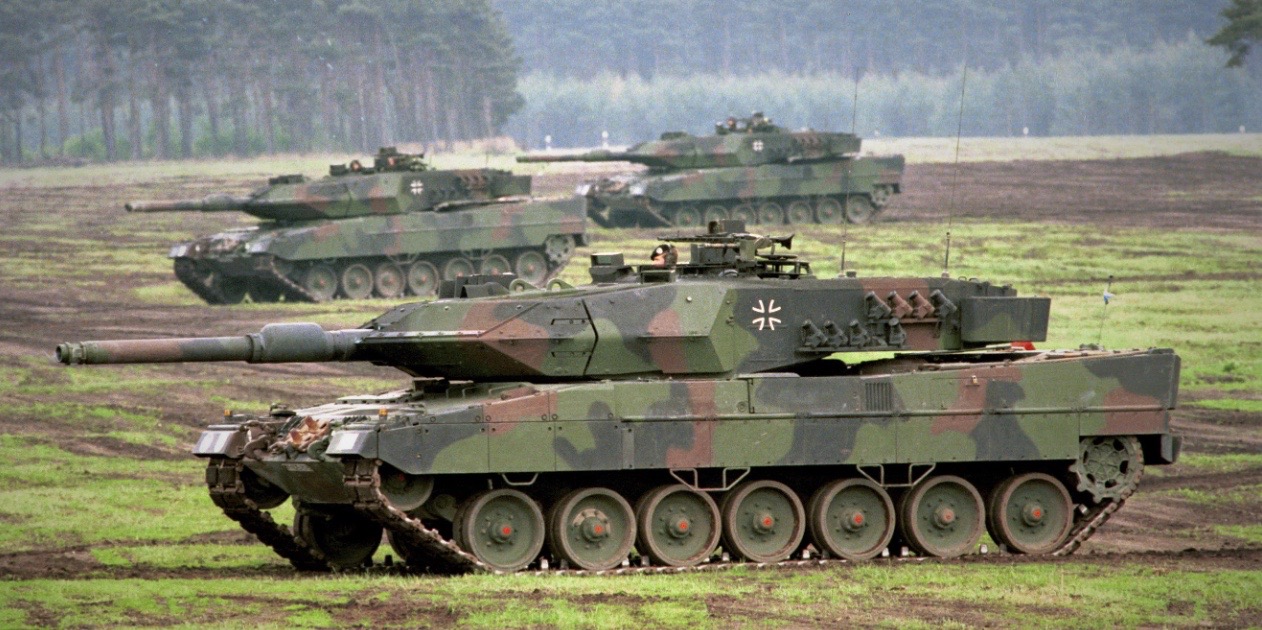(To Massimiliano D'Elia) Yesterday the Minister of Defense, Guido Crosetto to the television broadcast What's the weather like announced that the "sixth decree on arms to be sent to Ukraine is in preparation, there will be, I think it will be shared by almost the entire Parliament and will give Ukraine the possibility of defending itself against air attacks. It means missiles that shoot down other missiles. They are systems that have this purpose".
Faced with Italy's total alignment with NATO and Allied countries, Germany is still hesitating about sending the much-requested tanks Leopard II. At this point in the conflict, Germany deems it appropriate to make some reflections before it takes a different turn and encroaches beyond Ukraine, directly affecting other European countries. A request for reflection which, however, is not implemented. The United States is pushing for an end to hostilities by next July at the latest, after which it will be difficult to convince the Republicans on the opportunity to continue a war in which only the Americans have invested more in terms of military means and funding (to date about 30 billion euros). Then at the door are the presidential elections of 2024 where Biden cannot yield to any policy that is not "Buy American first“, as promised in the previous election campaign.
Poland, threatened by a war that is getting more and more heated day by day close to its borders, is pushing to receive the German authorization to deliver its Leopard II tanks to Ukraine. (Germany holds the patent for the tank and only it can decide on the fate of the weapon system and its use in war even by third countries).
Yesterday, the Polish premier wrote in La Stampa Mateusz Morawiecki sent a message to Berlin: “We will not passively watch Ukraine bleed to death. Kiev and Europe will win this war, with or without Germany“. He made it clear between the lines that he was willing to form a smaller coalition, with countries ready to donate some of their tanks, to circumvent German opposition.
The Baltic countries are also in line with Poland: “Germany, as a leading force in Europe, bears a special responsibility“, the Latvian foreign minister wrote on Twitter Rinkevics, also on behalf of Estonians.
American resentment over the German position remains strong which, among other things, also dictated conditions: we will send the Leopards if you send the Abrams.
Chancellor Scholz does not receive bipartisan support at home.”While people die every day in Ukraine, in Germany we argue as if there is infinite time“, emphasize the liberals. “Any delay is a boon for the war criminal Putin“, thunder the Greens.
Meanwhile Macron would like to send his own tank Leclerc provided that there is no escalation of the conflict and that the Ukrainian soldiers are trained and that the capabilities of the French defense are not compromised.
La Stampa: behind this "ballet" of tanks there is a speech of shortage of armaments available in the old continent
Berlin has fewer than 300 Leopard 2s, of which only 130 are said to be operational. Paris has 200 Leclercs available, and could give Kiev about twenty. All figures that do not change the balance on the ground. There is another reading which is becoming insistent from many quarters and was first put forward by the Swiss newspaper Neue Zürcher Zeitung, namely that Germany's resistance would be dictated by the fear that Washington would insinuate itself into the European arms market, hitherto dominated from German industry. The Leopard is the armored vehicle most purchased by NATO allies. It has a range of 550 kilometers with a 1500 horsepower diesel engine, but it is also among the most expensive: 7-8 million euros. There are 16 countries of the Alliance that own it. Some bought several hundred pieces, such as Turkey, Greece, Spain, Poland and Finland. Others have fifty or fewer, such as Norway, Denmark and Canada. Being the leading HGV supplier ensures long-term benefits by sourcing the entire logistics chain throughout the tank's life cycle.
